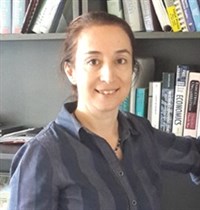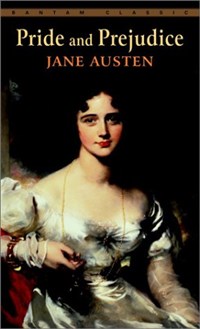 Çağla Ökten Hasker, Associate Professor, Department of Economics
Çağla Ökten Hasker, Associate Professor, Department of Economics
BY MELİS ERDEM (ARCH/II)
First of all, this is a very difficult question, and I’ve been thinking about it quite a bit. When I was a student in high school, I was very much influenced by Dostoyevsky’s “Crime and Punishment.” At this point, I don’t really remember the book that well, but at the time I was incredibly influenced by it.
Thinking more about what things have stayed with me, I realized that two authors have really had a big impact on me, and helped me realize what I value. The novel is my favorite genre, and the first author that I’d like to talk about is Jane Austen. I’ve read all her books—it’s hard for me to choose between “Pride and Prejudice” and “Persuasion” as my favorite. They both have great female characters. Elizabeth in “Pride and Prejudice” says, “There is a stubbornness about me that never can bear to be frightened at the will of others. My courage always rises at every attempt to intimidate me.” So, as a female heroine, she really inspired me.
Anne in “Persuasion” is also a great model, because she listens and tries to understand, in situations where others are talking without listening. So the two characters are really different, but I’m drawn to both of them: one, a good talker who can express her thoughts and values with confidence, but who does make some mistakes because she doesn’t always observe people closely; and the other, who is maybe sometimes too shy or timid about expressing herself, but is an incredible listener and observer who really understands why people act or talk in a certain way.
These two heroines really helped me improve my understanding of the human condition. The other author who has influenced me is John Steinbeck. Normally, I like dialogue, and Steinbeck doesn’t use much dialogue in his books. But his narratives are so beautiful. “Grapes of Wrath” is almost like poetry. In his books, the human condition is of a different kind. Austen writes about the privileged class in English society, whereas Steinbeck writes about the poor in the US during the Great Depression and afterward. In his books, the poor struggle very hard to change the conditions they live in. Those books influenced me to become a social scientist, an economist.
Here is one of my favorite quotes from “The Pearl”: “For it is said that humans are never satisfied, that you give them one thing and they want something more. And this is said in disparagement, whereas it is one of the greatest talents the species has and one that has made it superior to animals that are satisfied with what they have.” I believe that the human spirit has a resilience in conditions of hardship and difficulty, and with this resilience, we are able to come up with new ways of thinking about problems and solve them. I admire that in human beings, and Steinbeck describes it beautifully.
I would also like to mention three of the people who influenced me to become a reader. Actually, I thought I didn’t like reading until the age of 12, my first year in junior high. There, I made a friend named Özlem Onat, who loved to read. When I told her I didn’t like reading, she had some suggestions for me, like, how about this book or that book. When I started reading the books she suggested, I realized that I liked reading and also discussing what I read.
The other two people were Zeynep Çağlar, my dear English teacher at Kadıköy Anatolian High School (we read “The Pearl” in her class), and Suzan Yıldırım, my beloved Turkish literature teacher, who passed away too soon. I learned to love Ottoman poetry as she read those beautiful poems to us and explained their meaning.
I’m not exaggerating at all in saying that without those influences, I really would not be the same person that I am today. I’m truly grateful for the teachers, friends and all the wonderful books and authors that I’ve come across in my life.
Recently, I’ve read Chimamanda Ngozi Adichie’s “Americanah,” a novel about a Nigerian woman who moves to the US to attend college, and a memoir called “Stealing Buddha’s Dinner” by Bich Minh Nguyen, about a Vietnamese girl who moves to the US with her father and older sister at the end of the Vietnam War. Both are fascinating stories about being an immigrant and living in a culture different from your own. They are great stories with very interesting characters, and I would recommend them to anyone who would like to think more on the human condition.
